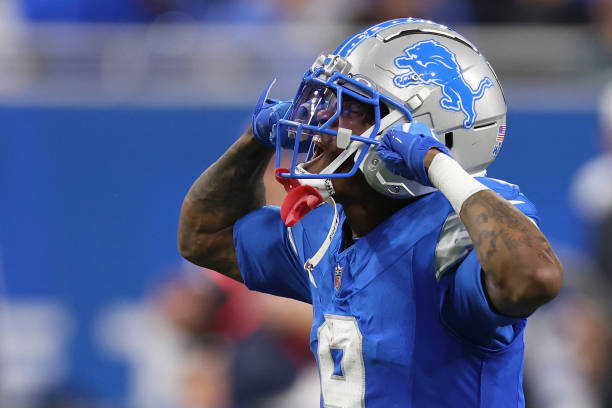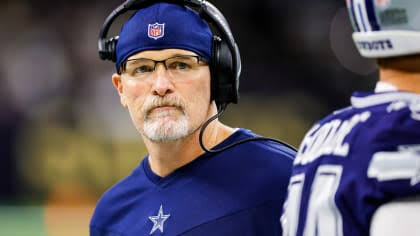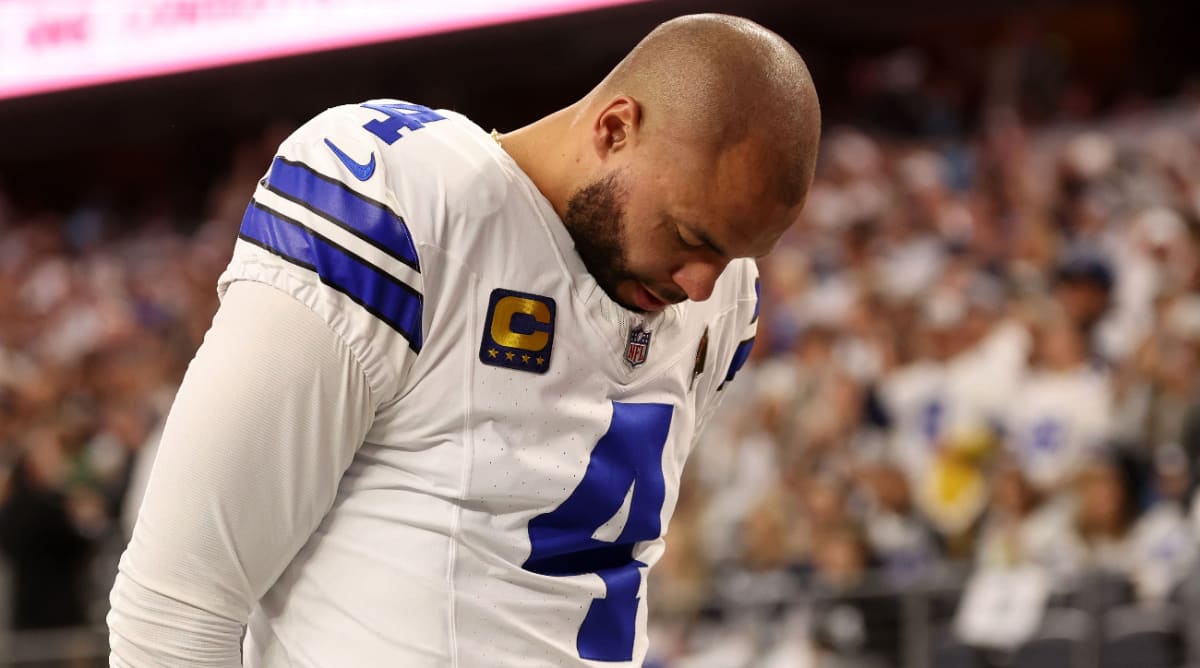Wayne County Prosecutor Kym Worthy stated Monday that Jameson Williams, the Detroit Lions third-year receiver who dodged a potential concealed weapons charge following an October traffic check, will not face any charges.
Williams was a passenger in his brother’s vehicle at 1 a.m. on Oct. 8 when Detroit Police pulled him over for speeding in a “unsafe manner,” according to Worthy.
Williams’ brother, who holds a concealed pistol license, presented the document and informed an officer that there were two firearms in the car. One of the pistols was registered to Williams’ brother and kept under the floorboard behind the driver’s seat.
The other was registered to Williams and stored in the front passenger floorboard. But he did not have a concealed pistol license.
The two told police they were driving as such because Williams is a Detroit Lions football player and they wanted to make sure they weren’t being followed.
Worthy said she could find no legal basis to charge the high-profile receiver. Worthy noted that Williams’ brother has a CPL and informed officers of both weapons. The gun was not on Williams, he never admitted to putting the gun in the car and Williams is eligible for a concealed pistol license, she said.
“Because the case law is silent regarding the specific issue, and the legislative intent of the CPL statute does not support charges under these facts, no charges will issue in this matter, and the warrant is denied,” Worthy’s office wrote in a news release.
“We have looked at this case thoroughly and objectively. We did not consider that Mr. Williams is a Detroit professional athlete in our decision making. We have charged Detroit area athletes before and would not have hesitated to do so again if the facts of this case could be proven beyond a reasonable doubt,” Worthy said in a statement.
“When it comes to charging decisions, we do not take into consideration who the potential defendant is, how much power and influence they have, or how beloved they may be. We deal with the facts and the law only.”

Worthy also noted that the objective of Michigan’s CPL law is to prevent criminals and violent offenders from being licensed to carry a weapon. Williams is not a criminal and he’s not dangerous, she said.
Williams’ attorney, Todd Flood, said in a written statement that Williams appreciated Worthy’s decision.
“Although, this decision was grounded in facts and the current state of the law, my client is thankful and humbled by the hard work Kym Worthy and her team put into this matter,” Flood said.
“This has been a trying time for Mr. Williams. Mr. Williams understands that being a professional athlete carries with it responsibilities to lead with character and professionalism. This is especially true when being blessed to be a member of the Detroit Lions.”
Adam Clements, a defense attorney who said he works on hundreds of similar cases per year, previously told the Free Press prosecutors often don’t charge cases in which there’s at least one concealed pistol license holder in the car and it’s not uncommon for officers to give people in Williams’ situation a break.
Worthy said she’s confident in her decision, but more guidance is needed for future similar cases and she called for the Michigan Legislature to look at the issue closely.
“The CPL holder here was the driver and had care, custody, and control of the car. Guidance is needed for the future on how many weapons can a valid CPL say that they have control over? Despite all of this, if Mr. Williams had the gun on his person, he would have been charged,” Worthy said.
Detroit Police had submitted a warrant request last month for charges against Williams after the department opened an internal investigation into how a supervisor on the scene of the traffic stop handled the case.
The unnamed supervisor OK’d the release of Williams rather than arrest him on a gun charge. After he was called to the scene and recognized Williams as a Detroit Lions player, the supervisor called higher-ups in the department. He’s heard on body camera footage obtained by WXYZ-TV (Channel 7) saying to his superior on the phone:
“You’re a (expletive) hero. Thank you so much.”
Detroit police did not immediately respond to a request for comment.



